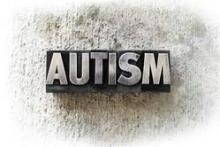The measles-mumps-rubella vaccine did not raise the risk of developing autism spectrum disorders in a large, diverse, national cohort of children, even among those who had older siblings with autism and thus were at increased risk, according to a report published online April 21 in JAMA.
To examine a possible association between the MMR vaccine and autism, investigators performed a retrospective cohort study using the claims database for a national health plan that treated more than 34 million patients each year. The geographically diverse study population included 95,727 children born in 2001-2007 who had an older sibling and were enrolled for at least 5 years, said Dr. Anjali Jain of the Lewin Group, Falls Church, Va., a health care consulting firm, and her associates.
A total of 1,929 of these study participants (2.01%) had an older sibling with an autism spectrum disorder (ASD). The prevalence of ASD was 1.04% in the entire study sample, which is comparable with the estimated prevalence of 1.5% in the general U.S. population. Among study participants whose older sibling had ASD, the prevalence of the disorder was 6.9%, which is comparable with the estimated prevalence of 6.4%-24.7% in younger siblings of autistic children in the general U.S. population. Vaccination rates were lower among children whose older siblings had ASD, both at age 2 years (73% vs. 84%) and at age 5 years (86% vs. 92%). This pattern has been observed in other studies and is attributed to some parents’ mistaken belief that vaccinations contributed to the older child’s disorder; some of these parents then refuse to vaccinate their younger children.
At age 2 years, the adjusted relative risk of developing ASD for children who received one dose of MMR, compared with those who received no vaccine, was 0.91 among children with unaffected older siblings and 0.76 among those with affected older siblings. Similarly, at age 5 years, the adjusted relative risk of developing ASD for children who received two doses of MMR, compared with those who received no vaccine, was 1.12 in children with unaffected older siblings and 0.56 in those with affected older siblings, the investigators said (JAMA 2015;313:1534-40).
These findings, which were confirmed in several sensitivity analyses of the data, demonstrate that there is no association between either one or two doses of MMR and an increased risk of ASD, even among children at high risk by virtue of having an older sibling with the disorder, Dr. Jain and her associates said.
This study was funded by the National Institute of Mental Health. Dr. Jain and her associates reported ties to UnitedHealth Group, the national health plan that provided the data.


